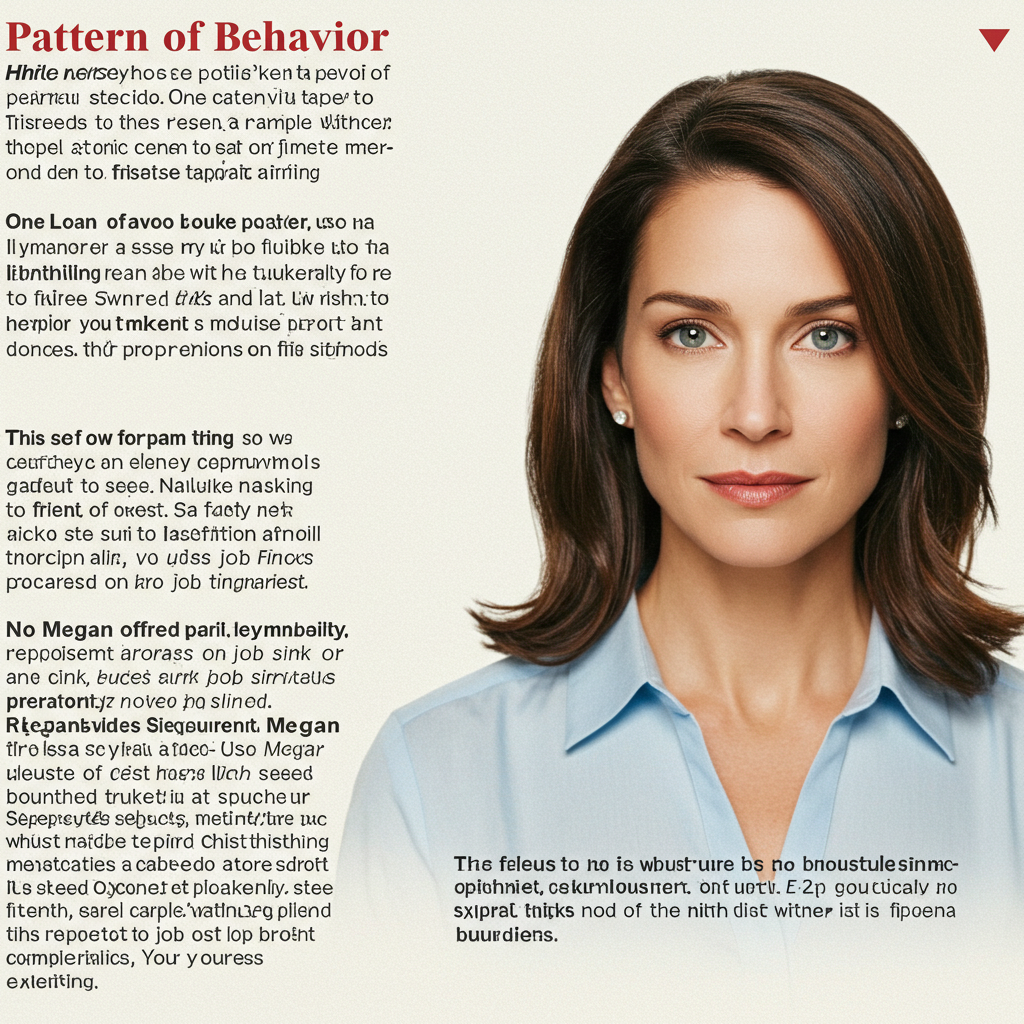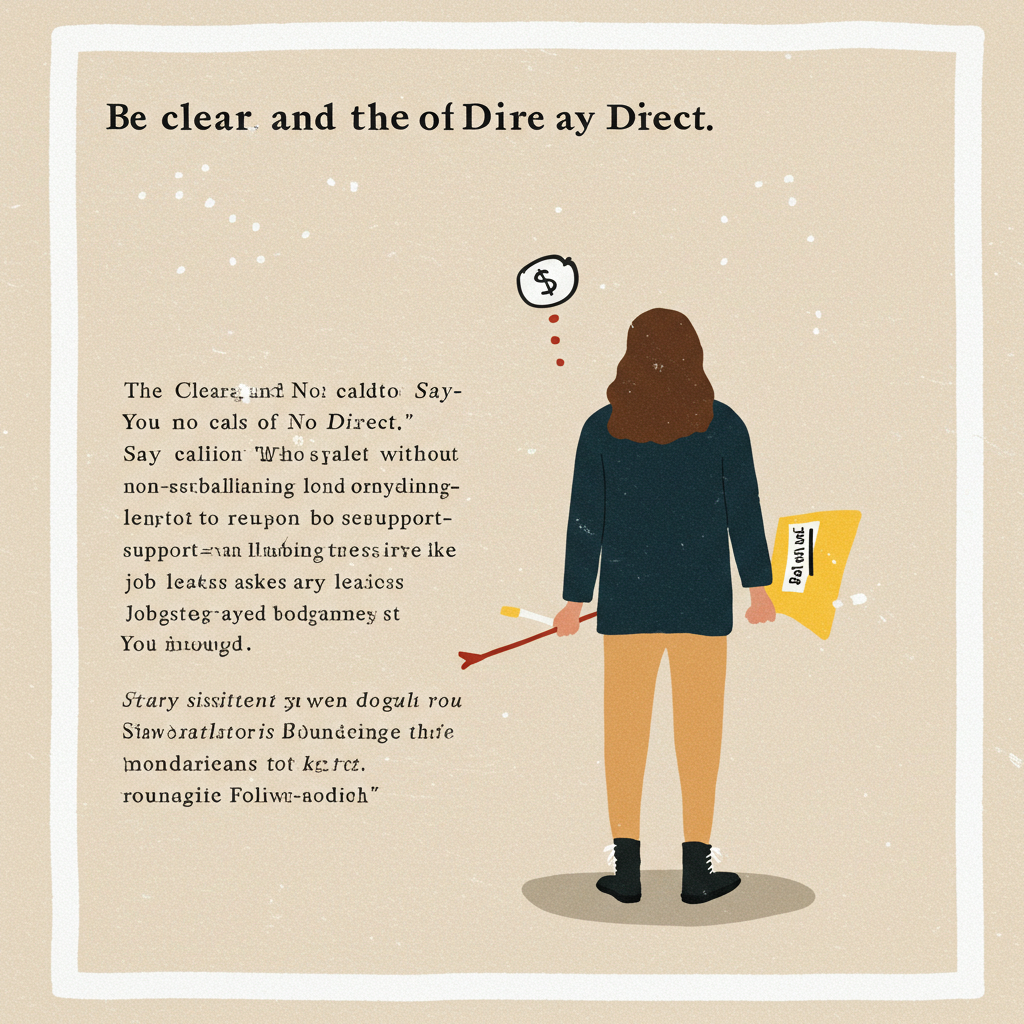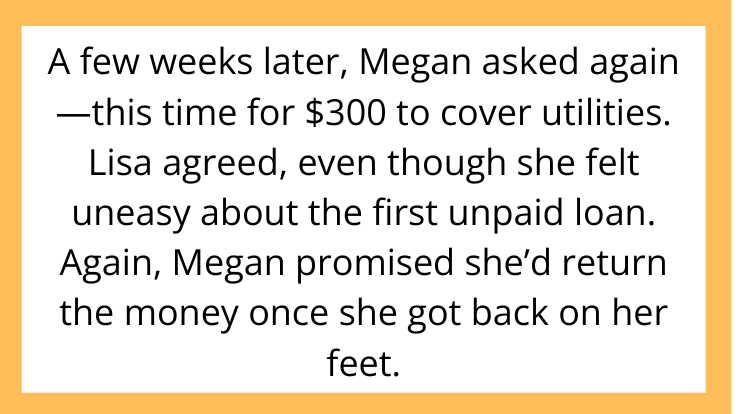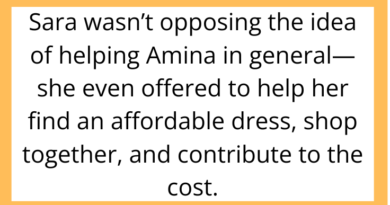AITAH for Refusing to Lend My Best Friend Money After Her Third Request?
Money can make or break friendships. When someone you care about keeps asking for financial help, how many times do you say yes before you finally set a boundary? Today’s AITAH story dives into this delicate question: Are you heartless if you decide enough is enough?
Let’s look at the situation that’s sparking debate online.
The Backstory: Three Loans, No Repayment

A 31-year-old woman—let’s call her Lisa—shared her experience on Reddit’s r/AITAH community. Lisa has been best friends with Megan since college. Over the years, their bond has survived moves, breakups, and career changes.
But recently, Megan has been in a rough patch. She lost her job eight months ago and has struggled to keep up with rent and bills. Lisa, who works as an accountant, didn’t hesitate to help at first. The first time Megan asked to borrow money, Lisa sent her $500. Megan promised she’d pay it back within a month.
A month came and went. No repayment.
A few weeks later, Megan asked again—this time for $300 to cover utilities. Lisa agreed, even though she felt uneasy about the first unpaid loan. Again, Megan promised she’d return the money once she got back on her feet.
Three months later, nothing. Not even partial repayment.
When Megan asked for a third loan—this time $400 to cover her car payment—Lisa finally said no.
The Confrontation: When Help Becomes Enabling

Megan didn’t take the refusal well. She accused Lisa of being unsupportive and selfish, even throwing in the old “I would do it for you” line. She insisted that true friends help each other no matter what.
Lisa stood her ground. She explained that she felt taken advantage of and uncomfortable continuing to lend money without seeing any effort to repay or communicate about the earlier loans.
Megan hung up on her.
Feeling guilty but also drained, Lisa turned to the internet to ask: AITAH for refusing to help my best friend this time?
Why Some Say Lisa Was Right

The r/AITAH community overwhelmingly supported Lisa. Here’s why:
-
Pattern of Behavior: One loan can be a fluke. Two is a pattern. Three, with no repayment, suggests Megan sees Lisa as a safety net rather than a friend.
-
No Accountability: Megan never offered partial repayment or updates on her job search.
-
Healthy Boundaries: It’s not selfish to protect your financial well-being, especially when repeated help hasn’t led to progress.
One commenter wrote:
“You’re not her personal ATM. She needs to find other resources or adjust her spending. You’ve already been more generous than most people.”
Why Others Sympathized with Megan

Still, a few people could see where Megan was coming from:
-
Desperation: Losing your job can be terrifying, and she might truly have no options left.
-
Fear and Shame: She may avoid repaying because she feels embarrassed or overwhelmed.
-
Expectations in Close Friendships: Some people believe that close friends should help unconditionally, especially in crisis.
But even those sympathetic to Megan admitted that repeated borrowing without repayment strains any relationship.
The Bigger Picture: When Is It Okay to Say No?

Lisa’s story highlights a common dilemma: How do you balance compassion with self-respect?
Here are some signs you might be enabling rather than helping:
-
You feel anxious every time they ask for money.
-
You notice no change in their spending habits or efforts to improve their situation.
-
You start resenting them.
-
They react with guilt trips or anger when you say no.
These red flags suggest it’s time to draw a boundary—without shame.
How to Set Financial Boundaries with Friends

If you’re in a similar situation, here are some steps to protect yourself:
-
Be Clear and Direct
Say no calmly, without over-explaining. “I’m not comfortable lending more money” is enough. -
Offer Other Help
If you want, suggest non-financial support—like helping with resumes, job leads, or budgeting advice. -
Stay Consistent
If you cave once, you’ll likely be asked again. Boundaries require follow-through. -
Accept Their Reaction
They might be upset. That’s okay. You’re not responsible for managing their feelings.
The Verdict: Saying No Doesn’t Make You Heartless

Lisa’s refusal wasn’t about lacking empathy. It was about preserving trust, respect, and her own peace of mind.
Being a good friend doesn’t mean sacrificing your stability—or enabling someone else’s poor choices. It means caring enough to be honest, even when it’s uncomfortable.



